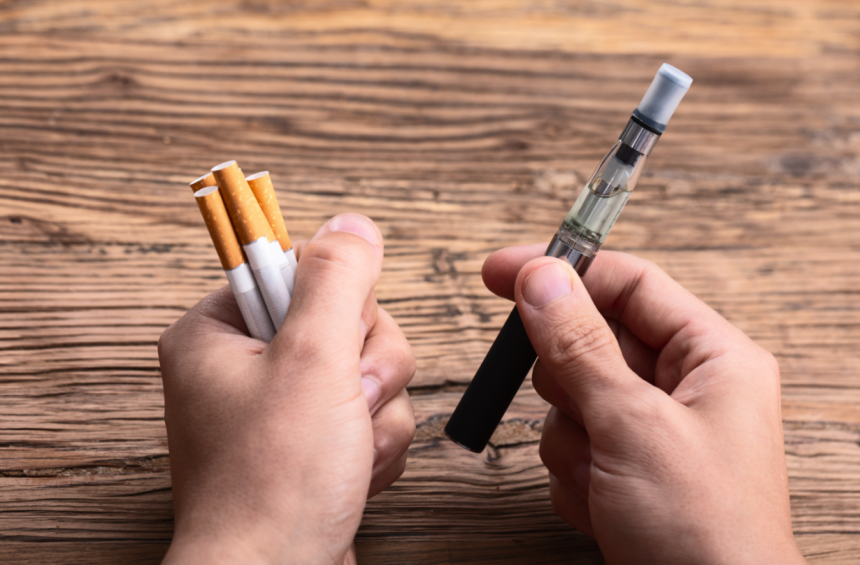If you’ve considered trying to quit smoking, you’re in good company. Approximately 7 out of 10 smokers express a desire to quit. Giving up smoking is among the most beneficial actions you can take for your overall health. Michael Joseph Blaha, M.D., M.P.H. explains that smoking it negatively affects nearly every organ in your body, including your heart. Almost one-third of heart disease-related deaths can be attributed to smoking and exposure to secondhand smoke.

Smoking cessation is a critical step towards improving overall health and well-being. With numerous smokers expressing a desire to quit and the detrimental effects of smoking on nearly every organ in the body, understanding the benefits and strategies for quitting is essential in supporting individuals on their journey to a smoke-free life. Smoking is a highly addictive habit that has been linked to a variety of serious health problems, including heart disease, stroke, lung cancer, and respiratory diseases. Despite the known health risks, many individuals continue to smoke due to the highly addictive nature of nicotine. However, the good news is that quitting smoking is possible, and doing so can lead to numerous health benefits.
Vaping is sometimes considered a less harmful alternative to smoking, it is essential to recognize that there are still risks associated with e-cigarette use. While e-cigarette vapor does not contain the tar and harmful chemicals found in tobacco smoke, it does still contain nicotine, which is an addictive substance that can lead to numerous health problems.
That being said, here are some potential benefits of vaping over smoking:
- Fewer harmful chemicals: Vaping generally involves fewer toxic chemicals compared to smoking cigarettes. Cigarette smoke contains thousands of harmful chemicals, including over 70 known carcinogens, while e-cigarette vapor contains significantly fewer harmful substances.
- Reduced health risks: Studies have shown that vaping may pose fewer health risks than smoking. Public Health England estimates that e-cigarettes are around 95% less harmful than tobacco cigarettes. This is because vaping doesn’t involve combustion, which is the primary source of toxicants in cigarette smoke.
- Less odor: Vaping typically produces less odor than smoking, as e-liquids come in a variety of flavors and don’t produce the lingering smell associated with burning tobacco.
- Improved lung function: Smokers who switch to vaping may experience improved lung function, as vaping doesn’t produce the tar and other harmful substances that can lead to respiratory issues.
- Cost-effectiveness: Vaping can be more cost-effective than smoking cigarettes, depending on the device and e-liquid consumption. Over time, the cost of e-liquids and replacement coils may be less than the cost of cigarettes.
- More control over nicotine intake: E-liquids come in various nicotine strengths, allowing users to control their nicotine intake more easily. This can be beneficial for those trying to gradually reduce their nicotine consumption.
- Social acceptance: Vaping is generally more socially acceptable than smoking, as it produces less odor and secondhand exposure. Many public spaces and venues have designated vaping areas, while smoking is increasingly prohibited.
Despite these potential benefits, it’s important to remember that vaping is not completely safe and can still pose health risks. It’s best to avoid all forms of nicotine consumption if possible, but if you are a smoker, switching to vaping may reduce some of the harm associated with smoking. Disposable vapes can be a convenient and cost-effective option for individuals who are new to vaping or who are trying to quit smoking. While refillable e-cigarettes and high-quality e-liquids may offer greater control over nicotine intake and fewer health risks, disposable vapes can be a good alternative for those who want to try vaping without committing to a more expensive and complicated device. However, it is important to select disposable vapes from reputable brands and to dispose of them properly to avoid potential health and environmental hazards. Finding the healthiest vape options can be challenging, as the safety and health risks associated with e-cigarette use are still not fully understood. However, there are several factors to consider when trying to choose a healthier vape option:
- Nicotine content: Nicotine is the addictive substance in e-cigarettes and can have negative effects on the body. Choosing e-liquids with lower nicotine content or opting for nicotine-free options can help reduce the risk of harm associated with nicotine use.
- Ingredients: Look for e-liquids that contain fewer ingredients, as these may be less harmful than those with a long list of additives. Ideally, the ingredients list should be short and easy to understand.
- Flavors: While the flavorings used in e-liquids are generally considered safe for ingestion, little is known about the long-term effects of inhaling them. Choosing e-liquids with natural flavorings or limiting the use of flavored e-liquids may be a healthier option.
- Quality: Choosing high-quality e-cigarettes and e-liquids from reputable brands can help ensure that the product is free from harmful chemicals and contaminants.
- Temperature: Vaping at lower temperatures may be less harmful than vaping at high temperatures, as high temperatures can lead to the formation of potentially harmful chemicals.
Vaping is often considered a less harmful alternative to smoking due to the absence of combustion and reduced toxic chemical exposure, but it still contains nicotine, an addictive substance that can lead to health problems. The potential benefits of vaping compared to smoking include fewer harmful chemicals, reduced health risks, less odor, improved lung function, cost-effectiveness, more control over nicotine intake, and greater social acceptance. However, it is important to note that vaping is not completely safe and can still pose health risks. When selecting a healthier vape option, individuals should consider factors such as nicotine content, ingredients, flavors, quality, and temperature. The best way to improve overall health and well-being is to quit all forms of nicotine consumption altogether. Support for quitting smoking or vaping is available, including counseling, nicotine replacement therapy, and support groups.














